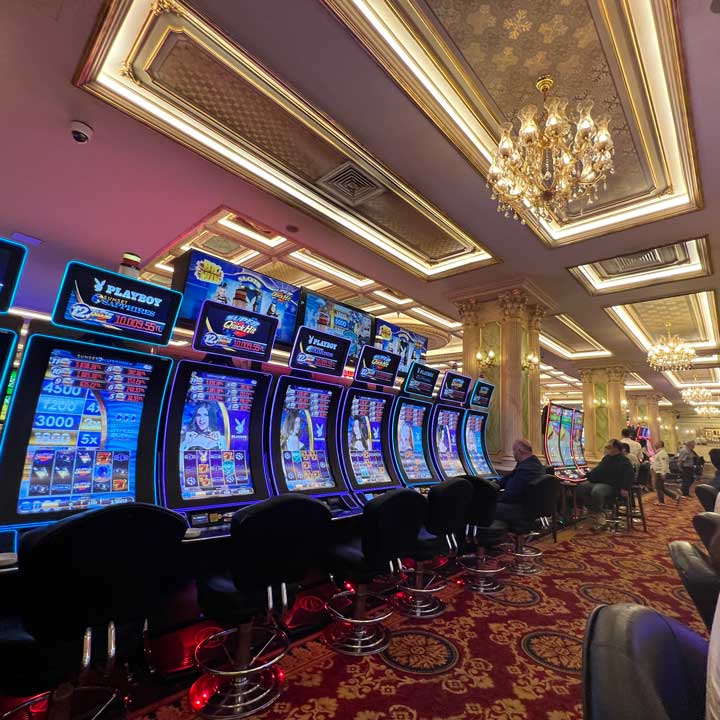
A world of entertainment has seen numerous changes over various decades, but few have captured the imagination and excitement of players like casino games. Originating in from the bustling halls of Las Vegas, Nevada and Atlantic City, New Jersey, these entertainments have moved beyond boundaries and cultures, becoming a worldwide phenomenon. From the dazzling lights of a mega-resort to the comfort of virtual platforms, the allure of gambling games is irrefutable, drawing millions into a world of chance and strategy.
As an increasing number of nations embrace gambling in multiple ways, the influence of American casino games is evident. They have not only shaped local gambling markets but have also inspired countless adaptations and innovations globally. Classic games such as the poker and the blackjack, along with modern variations, have created a shared language of entertainment that resonates across diverse populations. The mix of gambling risks, reward, and social engagement found in these activities fosters a distinct sense of belonging, further cementing their place in the global entertainment sphere.
Historical Overview of U.S. Casino Activities
U.S. casino gambling activities have a diverse and varied history that reflects the societal evolution of the U.S.. The origins of these games can be traced back to various European gambling practices brought over by settlers. Games like poker, the blackjack game, and roulette worked their way into the fabric of U.S. society in the 1800s century, achieving popularity in bars and steamboats. These places provided the ideal setting for community interaction and competition, laying a solid foundation for casino gambling as we recognize it today.
As the country moved to the west, gaming developed in tandem with it. The gold rush era in the mid-1800s witnessed the rise of gaming communities such as Deadwood, South Dakota and Tombstone, where gambling activities were played with big bets, often accompanied by an air of disorder. This time paved the way for the formalization of casino games in the early 20th century, notably with the establishment of Las Vegas, Nevada as a gaming hotspot. The construction of lavish casinos transformed the gambling environment, establishing an atmosphere where gambling activities could thrive and attract visitors from around the world.
In the past few decades, the legalization of casino gaming in multiple states has further expanded the range of games available. U.S. casinos now feature a mix of traditional games and new offerings that cater to contemporary players. This expansion has enabled for a distinct fusion of traditional and new, enabling the ongoing evolution of casino gaming culture in America. The international impact of these activities has also led to their inclusion into global gambling industries, demonstrating the enduring influence of U.S. casino gambling activities around the globe.
Worldwide Popularity and Influence
The growth of American gambling titles has marked a significant shift in the global gambling landscape. With their attraction crossing boundaries, these games have captivated players around the world. From Texas Hold’em tournaments to fruit machines, American styles have established a place in many international casinos. This transference of culture emphasizes how adaptable and compelling these titles are, adapting to local tastes while maintaining their classic American charm.
Additionally, the impact of these titles extends beyond traditional gambling establishments. Digital platforms have played a pivotal role in promoting U.S. gambling titles, making them available to gamers globally. The convenience of online gaming has brought millions to opportunities that were once limited to brick-and-mortar casinos. Players can now enjoy their beloved titles from anywhere, creating a new wave of excitement and expanding the player base significantly.
This widespread acceptance is also seen in the integration of American casino games into local cultures. Countries that have adopted these games often organize their own adaptations and tournaments, mixing local traditions with U.S. gaming traditions. This fusion not only enriches the gaming journey for players, but it also underscores the strong impact that U.S. gambling titles have on both leisure and community engagement across different societies.
Cultural Adaptations and Innovations
Gambling games have undergone notable transformations as they expanded across various cultures. Each region has taken in elements of U.S. gambling while adding its own traditions and habits. For example, the rise of digital casino platforms has enabled for the integration of local character into classic games like Texas Hold’em and 21. Gamblers now enjoy variations that incorporate regional wagering styles and distinct rules, making the games more accessible and welcoming for different audiences.
In numerous countries, the appeal of gambling games has led to the creation of localized versions that showcase cultural themes and narratives. This adaptability has paved the way for creative game development that resonates with gamblers on a individual level. hakim4d Gaming machines, for example, now showcase imagery and sounds that celebrate local traditions, folklore, and pop culture, which in turn improves the gaming adventure and fosters a sense of community among players.
Furthermore, the global influence of American casino games has inspired new game formats and blended styles. Some venues have combined traditional betting with entertainment elements, such as live performances or engaging tech, leading to a more immersive atmosphere. These innovations not only draw a wider audience but also guarantee that the essence of gambling continues to progress, bridging gaps between diverse communities while maintaining the thrill that gambling games are celebrated for.